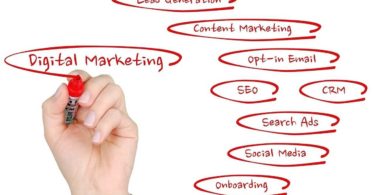
Digital Marketing for Your Business
Digital marketing began as a technology to promote products and services on the online platform. But throughout the years, it has transformed into an integral part of businesses. It’s more than just about putting ads on search engines and social media sites. Digital marketing drives a brand, personalizing it to a more focused target market. It makes use of analytics to assess, not just ad placement performances, but also customer behavior. It also follows and dictates how a customer should interact with a brand.
Digital marketing, in this era, is more than just marketing. Find out about the importance of digital marketing in the business industry below.
Digital Marketing for Business
With the emergence of a pandemic in the digital era, brick-and-mortar businesses were forced to rethink how to maintain and acquire more customers. They were all forced to go online, where the majority of the population has turned to for necessities and luxury needs. And, this is where the very essence of digital marketing is in the business industry—it lets people know that a business exists, where to find it, how to get its products or services. It also informs them what other people who have tried it think about it, the answers to the frequently asked question before purchasing, and many more.
Digital marketing is a new path that connects businesses to potential customers outside its locality. In addition, it comes with, not just foot traffic, but with measurable results as well. For one, a business gets to know where most of its customers come from through data analytics. Are they coming from Facebook, Pinterest, Instagram, referring blog sites, or Yelp?
But there are more reasons why a business should use digital marketing. Check out the list below.
Why Digital Marketing?
It Connects with People Where They Spend Most of Their Time and Money
Digital marketing allows a business to reach what most people look at 24/7: their mobile phones. Purchasing of goods happens on mobile phones, so do bank transactions, stock trading, news broadcasting, posting product reviews on social media platforms, reaching out to customer support, checking in locations, etc. It combines physical and online experience into a whole new digital world.
Digital Marketing Can ‘Segment’ Users for a Hyper-Personalized Experience
Newsletters carry a personalized touch in them. They reach inboxes and can provide individualized content and offers for the subscriber. Take, for instance, those birthday discount vouchers sent out by fashion brands to e-commerce customers.
They create an affinity for the brand, so customers come back and make a purchase again.
Data collection also personalizes the customer experience. When analyzed and utilized correctly, data can help a business know what a customer wants even before he or she says it. That is what auto-suggestions and retargeting do.
It Allows A Business to Connect with Customers without Forcing Them to Listen or Watch
TV advertising has become tiring that some people leave the couch when they’re on to go to the bathroom, grab a snack in the kitchen, or check their mobile phones. The attention span of viewers has shortened, and they only select what they want to see or hear. Digital marketing integrates its principles to already consumable content that is of value to target customers. This is good news for small businesses because they don’t need to go out on the streets with a megaphone to announce their latest deals. They don’t have to pay for overpriced ad placements on TV or radio either.
Digital marketing allows their potential buyers to comment, like, unlike, etc. It enables businesses to treat consumers as people with valued opinions.
Final Thoughts
Businesses in the online era need digital marketing to survive. It’s how people stay connected to their beloved brands, and how businesses stay relevant to their target markets. But for some, it’s easier said than done as not all are gifted with the skill sets needed.





